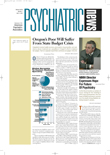Two complementary bills designed to address the high costs of medical mistakes to the public and physicians passed the House of Representatives last month.
Tommy Thompson, secretary of Health and Human Services (HHS), praised the passage of the Patient Safety and Quality Improvement Act (HR 663). The bill would create a voluntary confidential system for physicians and hospitals to report medical errors.
Patient safety organizations would be established to “analyze patterns of errors and identify needed systems changes,” according to an HHS press release.
“By creating a system that will encourage physicians and providers to freely share information about adverse events, this bill will enable us to develop and implement new procedures and techniques to protect patients and prevent correctable errors,” Thompson said in the release.
Thompson also announced that the Food and Drug Administration was seeking public comment on two new proposed rules designed to curb medication errors (
see article).
Lawmakers have sought to strike a balance between encouraging voluntary reporting and holding medical professionals accountable since 1999, when the Institute of Medicine reported that between 44,000 and 98,000 patients die each year from medical errors made by health care professionals, according to the March 13 Congressional Quarterly Today.
Interest in this issue heightened earlier this year with the death of 17-year-old Jessica Santillan after she underwent a heart-lung transplant with incompatible organs.
The measure would authorize $25 million annually for grants to hospitals and other health care providers to reduce the chances that an error would occur. Hospitals could apply for grants for activities such as creating compatibility between computer systems, computerized orders by physicians, and transmitting medical records electronically.
The likelihood that HR 663 will be enacted this year is greater than last year. Congressional Quarterly Today reported, “The House acted early in the session, and there is no deep opposition in the Senate.” The Senate could act on the bill before spring recess, which is April 14 to 25.
In related news, the House of Representatives also passed medical malpractice legislation last month that would cap noneconomic jury awards in medical malpractice lawsuits at $250,000, according to the bill (HR 5). It would apply to suits filed against doctors, hospitals, health maintenance organizations, and manufacturers of medical devices and drugs.
President George W. Bush pushed aggressively for the Help Efficient, Accessible Low-Cost, Timely Health Care Act of 2003, and Sen. Majority Leader Bill Frist (R-Tenn.) promised to bring the bill to a vote in the Senate. Its fate in the Senate is uncertain, however, because many Democrats oppose the bill, and supporters will likely need 60 votes to overcome a potential filibuster in the 100-member chamber, according to the March 14 Washington Post.
The summary, status, and text of the Patient Safety and Quality Improvement Act (HR 663) and the Help Efficient, Accessible Low-Cost, Timely Healthcare Act of 2003 (HR 5) can be accessed on the Web at http://thomas.gov by searching on the bill number. ▪
